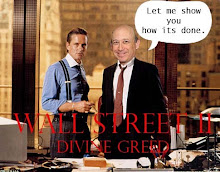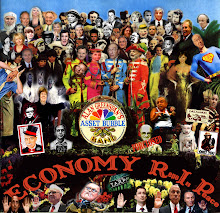"We may well call it 'the tragedy of the commons,' using the word 'tragedy' as the philosopher Whitehead used it: 'The essence of dramatic tragedy is not unhappiness. It resides in the solemnity of the remorseless working of things.'"
Garrett Hardin
Have you heard the expression: 'Tragedy of the Commons?
"The tragedy of the commons refers to a dilemma described in an influential article by that name written by Garrett Hardin and first published in the journal Science in 1968. The article describes a situation in which multiple individuals, acting independently, and solely and rationally consulting their own self-interest, will ultimately deplete a shared limited resource even when it is clear that it is not in anyone's long-term interest for this to happen." [ Source: Wikipedia]
"Central to Hardin's article is an example (first sketched in an 1833 pamphlet by William Forster Lloyd), of a hypothetical and simplified situation based on medieval land tenure in Europe, of herders sharing a common parcel of land, on which they are each entitled to let their cows graze. In Hardin's example, it is in each herder's interest to put the next (and succeeding) cows he acquires onto the land, even if the carrying capacity of the common is exceeded and it is temporarily or permanently damaged for all as a result. The herder receives all of the benefits from an additional cow, while the damage to the common is shared by the entire group. If all herders make this individually rational economic decision, the common will be depleted or even destroyed to the detriment of all."
Now think about the three hollow legislative themes of 2009: healthcare reform, the fight against global warming and financial regulatory reform. Greedy medical insurers, unsavory banksters and energy gluttons, these are the modern day herders working to ensure that "the commons will be depleted or even destroyed to the detriment of all."
Subscribe to:
Post Comments (Atom)




































.jpg)












No comments:
Post a Comment